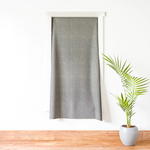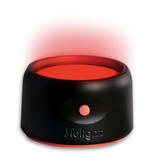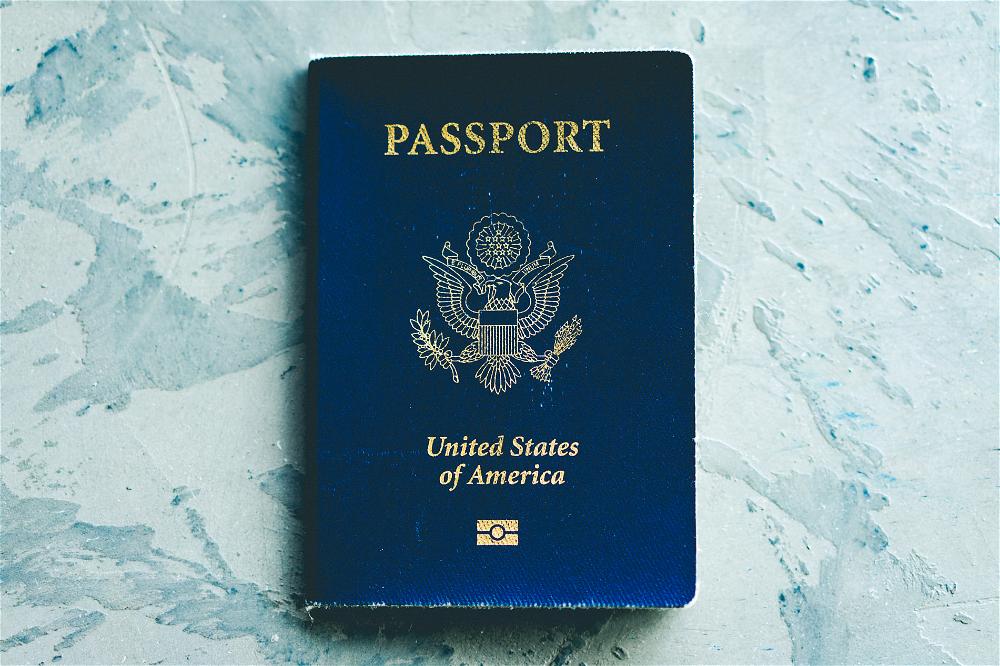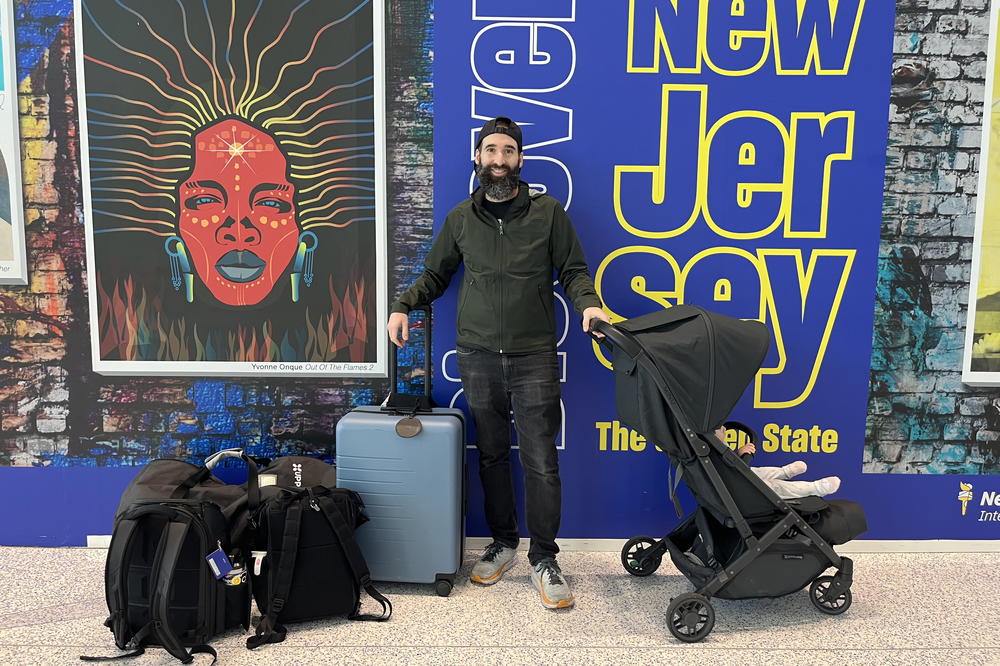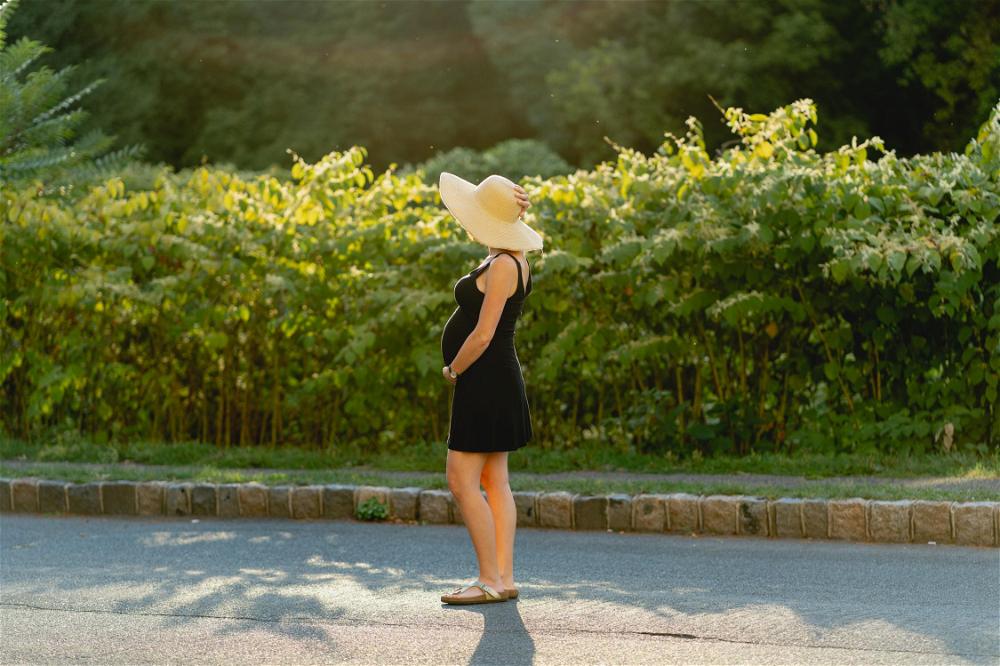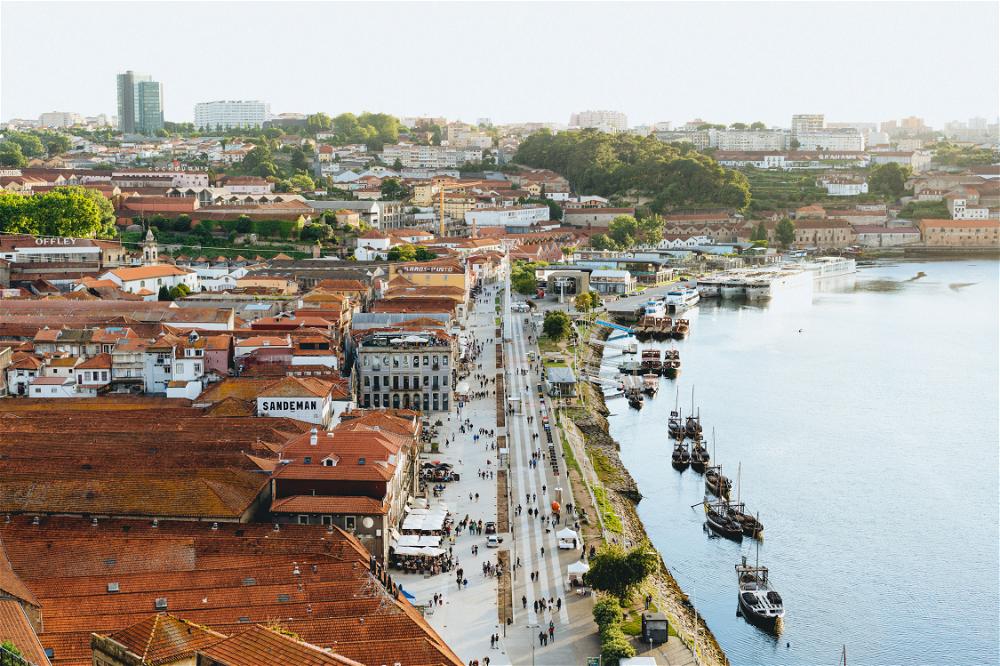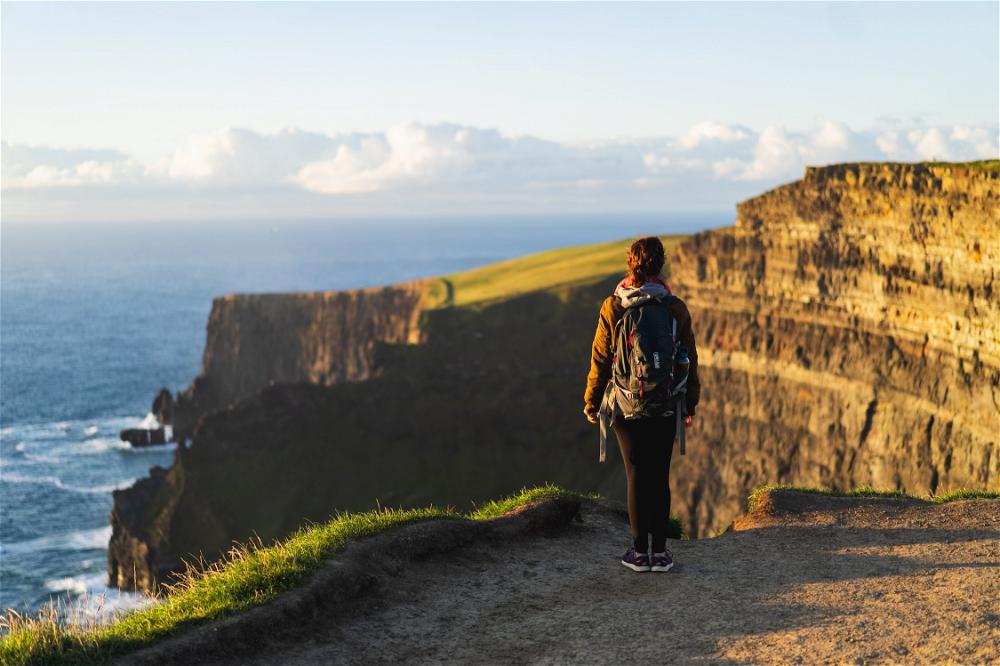15 Tips for Better Sleep While Traveling (and Product Ideas)
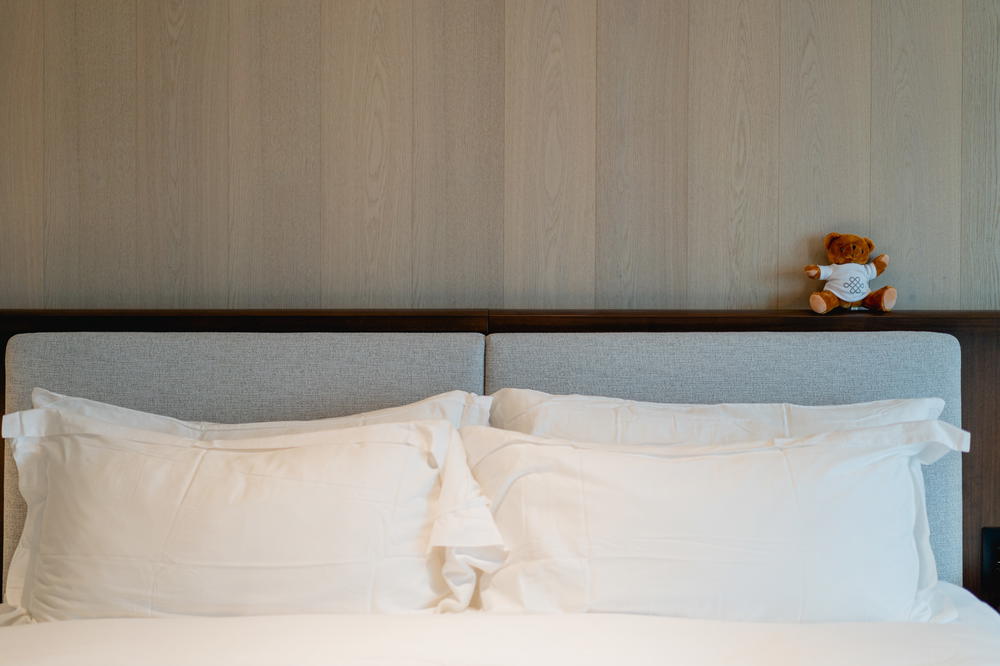
How can you sleep better during vacations and travel? I put together my best tips and tricks for getting a full night of sleep and quality rest while on the road.
This article may contain affiliate links. We earn a small commission when you purchase via those links — at no extra cost to you. It's only us (Becca & Dan) working on this website, so we value your support! Read our privacy policy and learn more about us.
Table of contents
- Aim to sleep 8 hours per night while traveling
- Feel free to make time for naps
- Take some blackout shades or curtains
- Bring a sleep mask
- Invest in good ear plugs for sleep
- Bring a travel night light
- Pack a travel-sized sound machine
- Avoid caffeine after noon
- Stay hydrated
- Cut out alcohol
- Bring a variety of pajamas
- Cut out screen time an hour before bed
- Try to minimize travel stresses
- Minimize liquids after dinner
- Use a red light sleep product
One of the most stressful parts of traveling can be figuring out how to get the best sleep when you’re on a trip. For me, I hope that all the stars will align and I’ll be able to get an uninterrupted restful eight hours, but I’m not always so lucky.
So, what are the best practices and the smartest ways to ensure a good night of sleep when you’re on vacation, a business trip or any type of travel?
I’m excited to show you the tips that have worked for me, as well as some useful and travel-sized products that make sleeping easier while on the go.
Let’s begin!
Aim to sleep 8 hours per night while traveling
While Dan and I both need different amounts of sleep to function properly, we tend to average on eight hours, which is a healthy and recommended number of hours to sleep. Many times in our travels, I have calculated 8 hours backward from when I’d like to wake up. We plan to go to sleep 8 hours before that time.
For example, if we’re traveling in a hot location like Merida, Mexico, and we want to beat the day’s heat, waking up at sunrise might do the trick. Use our sunrise and sunset calculator to find out exactly when sunrise will be at your destination. To do this, I might have to try to go to bed at 9:30pm.
Or, if we have a super early flight like a 7am departure, we have to get to the airport at 5am, and likely wake up before 4! Going to bed at 8pm can be impossible for most people, so I do my best to go to bed early and make up the time with some naps later on.
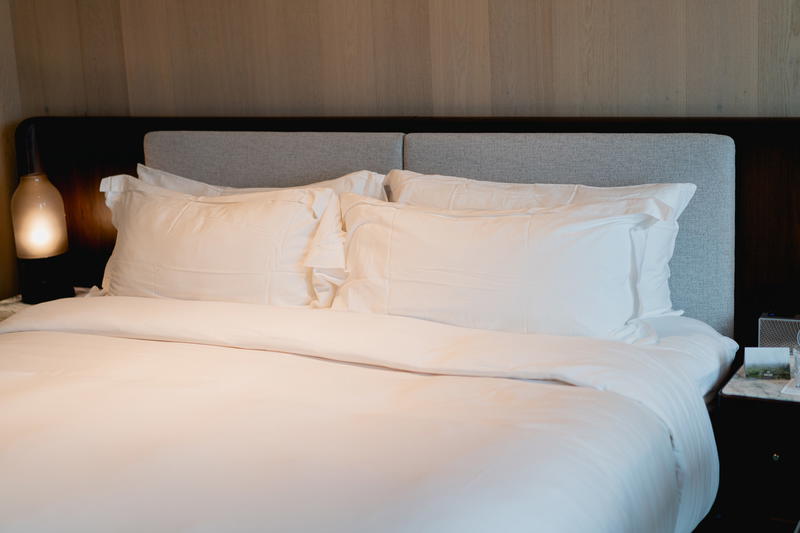
Feel free to make time for naps
Especially with jet lag, naps can be your friend. I have more “FOMO” than Dan does, so the thought of taking a nap when we get to a new place pains me a bit more. I’d rather be seeing and hearing all the new sights and sounds, but rest comes first if I’m exhausted from flying. If you’re dealing with jet lag, check out our jet lag optimizer tool to help plan your sleep schedule.
A nap can help pack in a few missed hours of sleep, if I’ve changed time zones, or had a really early flight. A best practice for me has been to set a nap alarm so that I don’t oversleep, and wake up in time for dinner to get on the correct time zone.
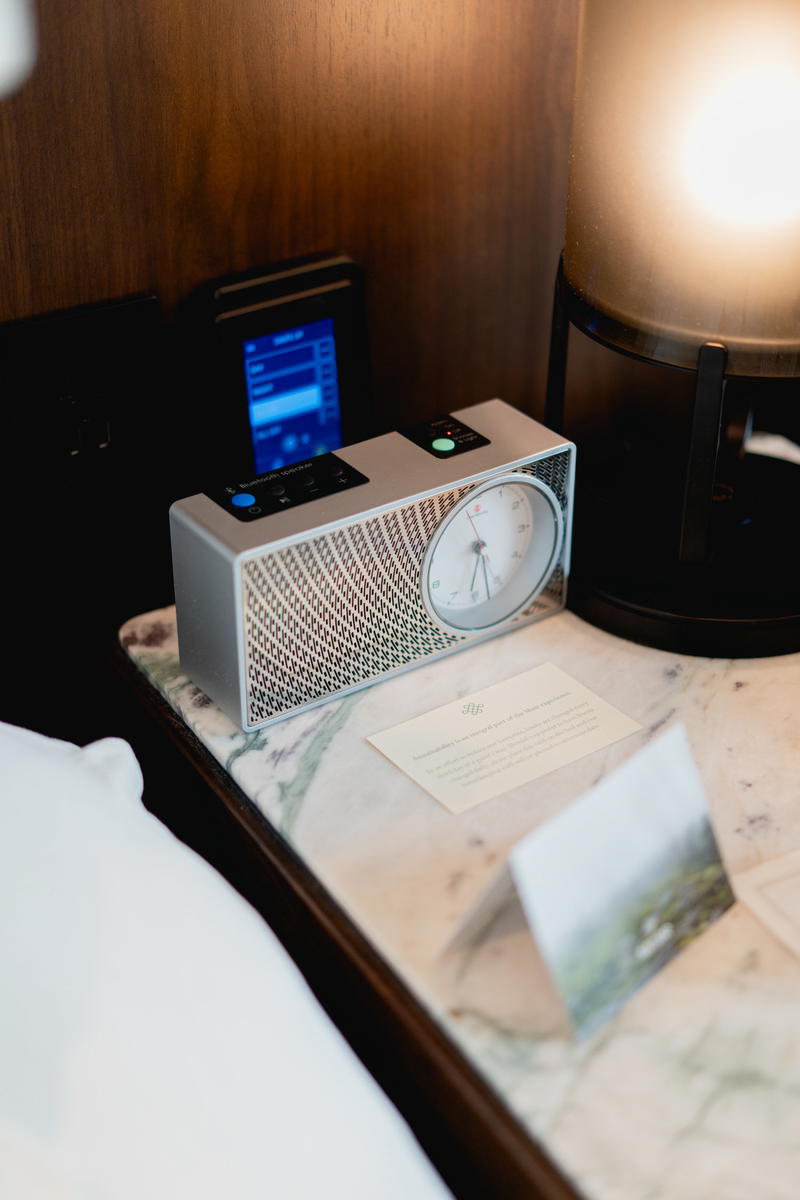
Take some blackout shades or curtains
If you luck out with a hostel room, hotel room or apartment rental with blackout shades, congratulations! You will probably be sleeping through the night.
If you like being woken up by the sun, it’s sometimes smart to check what time the sun will rise. Cities around the world will have varying sunrise times during different seasons. Just as an example, NYC’s latest sunrise will be 7:19am in December, and the earliest one will be 5:24am in June. That’s quite a difference! Use our sunrise and sunset calculator to find the exact sunrise time for your destination and travel dates.
While a product like the travel-friendly Sleepout blackout curtain is marketed toward babies and children (and I recommend it in my guide for how to sleep in a hotel with a baby), it’s perfectly suitable for adults or any traveler. Blackout shades can help you sleep later if the sun comes up early, and can help you take a nap during the day time if you’re jet lagged.
Bring a sleep mask
I use a sleep mask if she’s trying to sleep in a room that lacks curtains, or on a plane, train or bus. It’s my way of getting darker conditions for my eyes, which leads me to being able to fall asleep. I actually just read this article in the Washington Post about the benefits of sleep masks for improving sleep and boosting brain health.
My travel sleep mask came in the most handy in Tallinn, Estonia, where we traveled during the ‘longest day of the year.’ The sun would come up around 3:30 or 4:00 am, and our room would get leaks of light despite the blackout curtains, well before we wanted to be up. I used a sleep mask every night to drain out the light and to sleep until I wanted to.
I use my mask at home, too, and I credit it for helping me fall asleep faster.
Invest in good ear plugs for sleep
I’m a much lighter sleeper than Dan is, so we handle noise differently. I always need to have ear plugs if we’re sleeping at an Airbnb or hotel that has noise coming from above, below or outside.
The most challenging noise we’ve dealt with was in Mexico City, when we stayed in an apartment on the first floor close to the street. In addition to overnight construction and street repaving, some types of food vendors would start rolling through the streets around sunrise. The noise was pretty loud, and reverberated off our floors and walls!
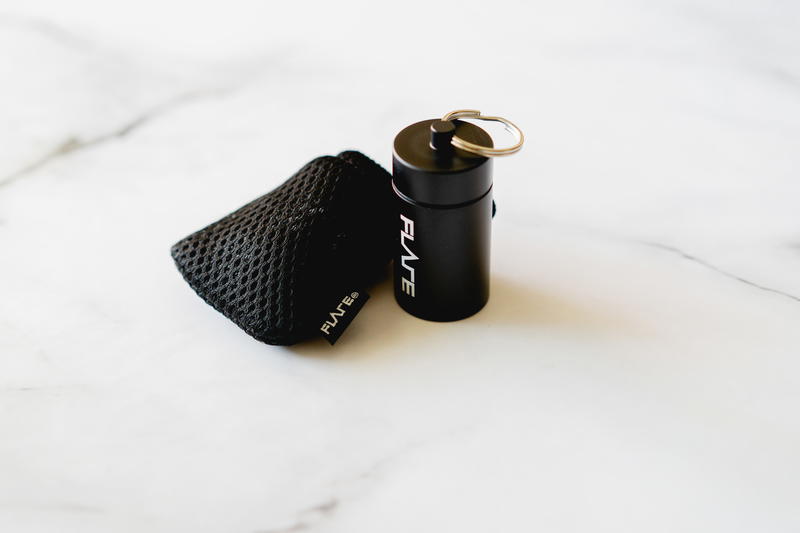
Ear plugs help drown this type of unwanted distraction out. My #1 pick for ear plugs is the Flare Audio Sleep Pro, which is an ear plug with a heat-reactive memory foam fit. The Flare Audio ones have incredible noise cancellation and block loud annoyances exceptionally better than other ear plugs I’ve tried.
I wrote up my entire experience with them at my Flare Audio ear plug review.
Bring a travel night light
If you habitually wake up every night to go to the bathroom, you probably already have a night light at home so that you don’t have to turn on bright bathroom lights in the middle of the night.
If you’re at a hotel or Airbnb, why not bring along travel-sized night lights to plug into the bathroom wall? This way, you won’t “wake yourself up” with the overhead bathroom light, and you can settle back into sleep after a trip to the restroom.
I recommend these night lights that I have at home: they’re compact, fit in your travel tech bag, and won’t create a disturbance during the night.
Pack a travel-sized sound machine
Before creating my list of products for traveling with a baby, I never considered that having a travel-sized sound machine was going to be one of my top survival items. I have to admit, though: having a sound machine that fits right into our luggage is nice!
Using a sound machine can help dull out unwanted noise from things like a noisy heater or A/C unit, sounds from the street like Mexico City’s plethora of street peddlers at the crack of dawn or even things like crickets chirping or dogs barking.
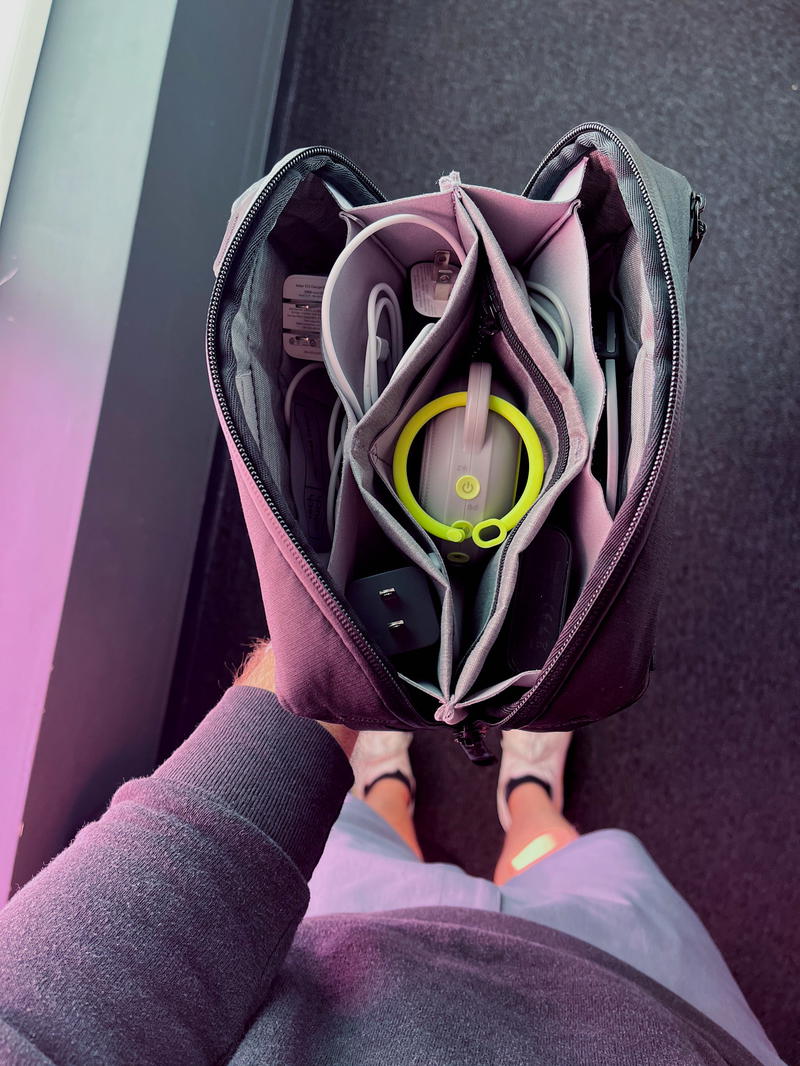
We recommend the Yogasleep sound machine for travel, without a doubt.
Avoid caffeine after noon
As I’ve gotten older, I’ve become more sensitive to caffeine and how it affects my sleep. I used to have a morning coffee at work, followed by an afternoon coffee at 3pm like it was no big deal. You may also know that I’m a coffee lover, as someone who authored lists like the best cafes in Mexico City worth visiting.
Nowadays, I specifically only drink a coffee or latte before 12pm. This helps me keep caffeine out of my body in the second half of the day, so that I can wind down appropriately when I choose to go to bed.
This article from Sleep Education reminded me that it’s not just coffee you should avoid, if you want to get high-quality sleep at night. There are lots of beverages, from black tea to energy drinks, having substantial levels of caffeine, that can affect the quality of sleep too close to bedtime.
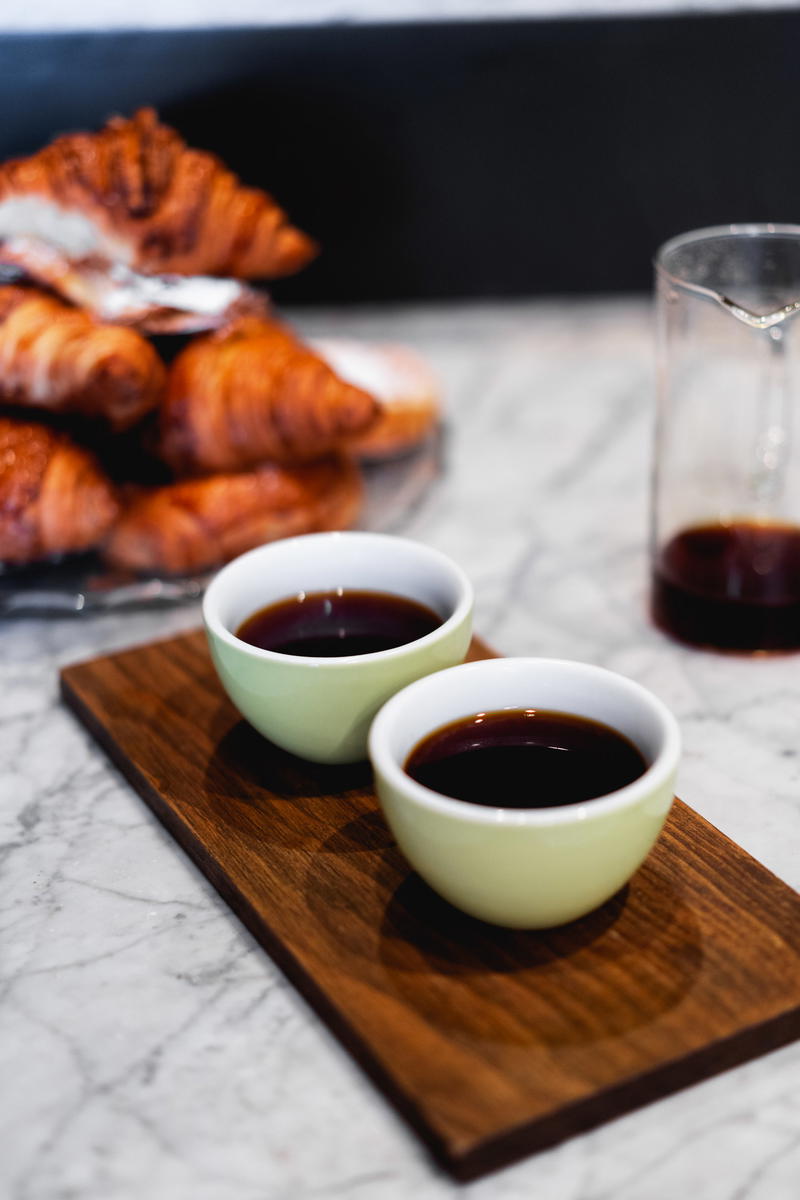
Stay hydrated
Staying hydrated during a trip can be tough, especially if you are flying. Well, it’s why one of my best accessories for long flights is a reusable water bottle! During a flight, I never hesitate to ask a flight attendant for more bottled water or another seltzer water, to avoid getting dehydrated.
Flights aside, staying hydrated when you’re on the move sightseeing, or traveling for a one-day business trip, can be challenging. I learned from the Sleep Foundation that dehydration can impact your sleep cycles, and how long you sleep overall.
So, remember to drink water, or if you don’t like water, try herbal teas, sparkling water or club soda.
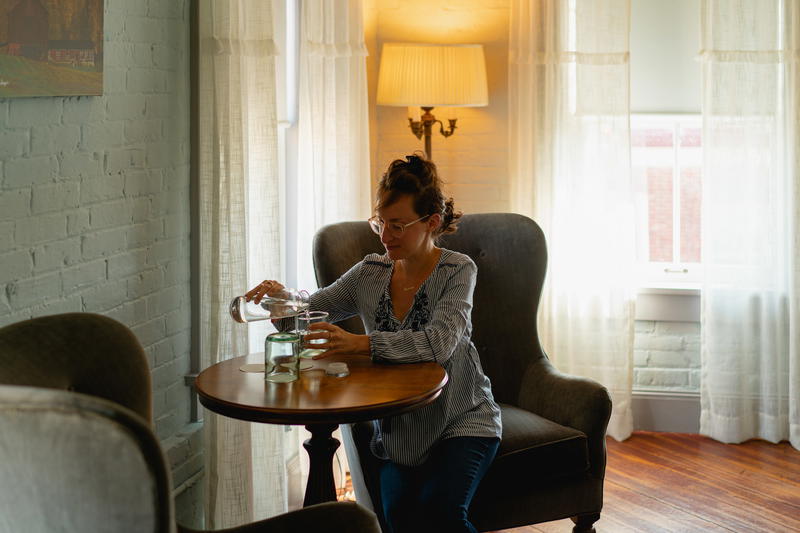
Cut out alcohol
It’s no secret that alcohol messes up your sleep cycles and your brain. It has been a while since I would have more than one drink during a night on a trip (I feel old).
These days, I limit my alcohol consumption to a single glass of wine or maybe a local specialty beverage, depending on where I’m traveling. By limiting alcohol to one drink, or half a drink, or no drinking at all, you’re helping your brain avoid the negative effect on REM sleep.
Having too much alcohol in your system can cause you to wake up and have a tough time going back to sleep (I learned this from Piedmont Healthcare). This is exactly what you don’t want while you’re on a trip I’ve been looking forward to for ages. Instead, I want to be refreshed when I wake up so that I can enjoy every moment of my travels.
Bring a variety of pajamas
By this, I don’t mean, “bring a ton of pajamas,” but rather, bring pajamas that reflect running both hot or cool at night.
We’ve traveled in some places (Sri Lanka) where the AC or fan was broken, and humidity was causing me to wake up every hour. This can even happen in some nice hotels if you just can’t get your room to cool down from being heated in the winter.
I’ve also slept in some (extreme) places where I was so cold and unprepared that I couldn’t sleep. Or, there could be a place that has a faulty heater. This puts a negative effect on the travel experience I’ll have after nights like these, unfortunately!
When we travel, I bring a pair of my comfiest shorts, and a worn-in T-shirt, as my pajamas for sleeping at a comfortable temperature. I also make sure I have a pair of super comfortable sweatpants and a travel hoodie like my Aviator hoodie, both of which can double as travel clothes when I’m in transit.
Cut out screen time an hour before bed
If you’re the type who keeps your phone on the highest brightness and is scrolling media right before bed, consider opting for a new routine if you’ve had trouble sleeping while traveling.
The light from our screens can “delay the transition to sleep,” according to Sutter Health, even if we’re doing something “relaxing” on our phones.
Of course, if you’re having sleep issues, cutting out the use of your phone 60 minutes before bedtime may not solve everything. But, it can help.
Try to minimize travel stresses
Getting stressed while traveling is something that has happened to me. Usually it’s in regard to early flights, buses or trains, and what will happen if I miss them or if they get canceled.
Being this stressed before sleeping is no good because it can create spiraling or racing thoughts, which can lead to insomnia. I’ve been there!
Here’s my recommendation: remember to stress only about things in your control. There’s a lot that will always be out of our control, as humans, so focus on what you can make happen, and make a plan.
If it’s about a 6am flight and how to not miss it, test your alarms before going to bed. Pack your entire suitcase beforehand. Do things like this so that you lower your stress levels before some much-needed sleep.
Minimize liquids after dinner
This tip is, quite honestly, the hardest for me, because of how much pressure I put on myself to drink fluids and stay hydrated during travel. One thing that can be really annoying, though, is if you have to wake up in the middle of the night to go to the bathroom, and then have a tough time falling back to sleep.
How can minimizing your fluid intake after dinner time can help with sleep during travel? The answer is that by sipping only a little bit of water every now and then after dinner, you’ll set yourself up for a full night of uninterrupted sleep. Hopefully, you can avoid a trip to the bathroom at 2am.
Use a red light sleep product
I started using infrared red light therapy to wind down at bedtime and realized why this is becoming popular. Previously, I would just hit the lights and try to sleep, but the issue was that I was going from total light to darkness in an instant, and telling my body that this was normal.
One way to normalize and stabilize your mind and body to naturally winding down at bedtime is using a Helight Sleep light. This is a travel-sized gadget that I started experimenting with, and it brings all the benefits of the infrared light that helps your brain relax.
Red light (think of a sunset and how it gets continually redder before the sky goes dark) signals to the body that it’s time to rest, and the Helight gradually dims over the course of 14 minutes after I turn it on with a button. I describe how it has helped me chill out before sleep, at my Helight Sleep review.
I use my Helight at home, so that I can get used to it, and then pack it up for a trip. It’s small, about the size of the bottom half of a coffee mug, so it fits slimly into my luggage or a tech pouch.
Using a Helight device also helps travelers recover from jet lag by simulating nightfall, and overall, it’s been a cool way for me to experiment with my body’s melatonin release. There’s also a Helight for kids that we’ll eventually try out with our daughter. For a complete jet lag strategy, use our jet lag optimizer to plan your sleep schedule adjustments.
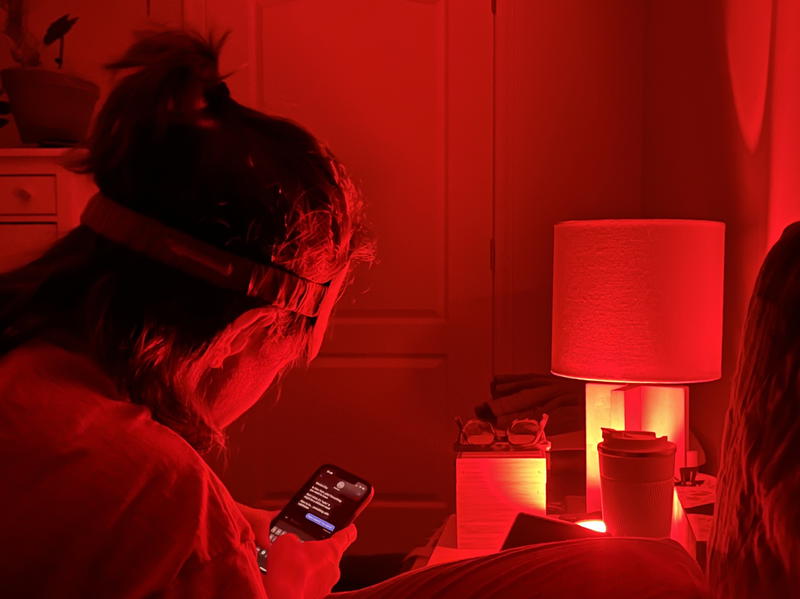
What about sleeping pills during travel?
I may be in the minority, but I am very, VERY cautious about sleeping pills. I just read a note from a friend who took a sleeping pill on a plane, and she started to feel her hands get numb and felt overcome with nausea. While these adverse effects may not happen for everyone, either is still a possible side effect of sleeping pills.
Sleeping pills can help put you to sleep, but because they are an artificial way of getting your body to rest, you may wake up groggy, or wake up when they wear off, and feel strange. The only time I have used sleeping pills was after my allergic reaction in Costa Rica, when my hand was in such pain that I needed assistance with getting my body to relax and go into sleep mode.
If you have been prescribed sleeping pills for travel, this is of course, different. I would encourage you to speak with a health professional to determine if sleeping pills are the right course of action for you to get sleep during your trip.
✈️ Did our travel tips help?
We share honest, experience-backed advice to help you with smoother trips. If our suggestions saved you time or stress, treating us to a coffee lets us keep researching the next post.
Fuel more travel adviceYou may also like
-
![A blue passport sitting on a blue surface.]()
How to Know If You Need an International Travel Visa
How do you know if you need a visa to travel to another country? Getting visas can be one of the challenges of international travel. Our how-to guide will show you a few steps to determine if you need a visa for your trip.
-
![]()
16 Smart Tips: How to Pack Light Traveling with a Baby or Toddler
Prep like a minimalist and pack light for your travel with a baby or a toddler. In this list, learn expert tips for eliminating bulk and excess when you pack the family bags for vacation.
-
![A woman in a black dress and a straw hat is standing on the side of the road.]()
Tips for Planning a Babymoon (What You Should Know)
What is a babymoon, why should you go on one, and when should you take a babymoon? See my babymoon trip tips for for couples taking babymoons before a new baby!
-
![Red roofed white buildings and a pedestrian walkway full of people next to a river with boats]()
22 Most Affordable Travel Destinations in 2026
Looking for cheap places to travel? From Vietnam to Guatemala, discover the best budget travel destinations where your money goes further. Get inspired for your next affordable vacation.
-
![Woman wearing a backpack looking into the distance at the Cliffs of Moher Ireland]()
9 Minimalist Packing Tips (Smarter Packing and Planning)
How can you start minimalist travel planning and prepping? Here, we teach you our tips and tricks to pack like a minimalist, bring less stuff and choose versatile travel products.
-
![]()
Pregnant and Traveling: 16 Handy Essentials for Comfy Flights
Through taking flights while pregnant, I found things that help make the trip more comfortable. Here are my personal recommendations of what to pack for flying during pregnancy.
